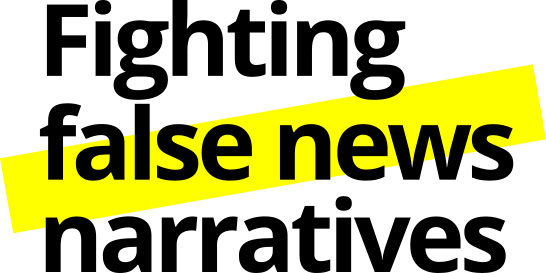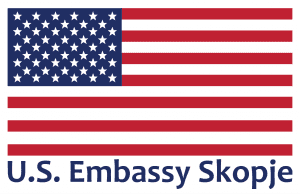Giving labels to Bulgarians is just the way the Kremlin wants to see this game going. Generalizing and blaming the Bulgarian nation covers up the real centers of power, influenced by Kremlin, that want to foster nationalism, hatred and divisions across the region. We should all abstain from attacking the Bulgarians and leave the space for the progressive and democratic West to find the solution and prevail. Based on past experience, it certainly shall.
The complexity of the Bulgarian political context cannot be accurately captured without accounting for the political actors currently on the scene: the Bulgarian Socialist Party (BSP) presided over by Kornelia Ninova, the far-right VMRO – BND (Internal Macedonian Revolutionary Organization – Bulgarian National Movement) and its President Krasimir Karakachanov, the ultranationalist ATAKA party led by Volen Siderov, Volya, the party of Veselin Mareshki, and the center right party Citizens for European Development of Bulgaria (GERB) led by Boyko Borisov. Each of these parties has characterized the last 10 years of Bulgarian politics, some of them less and some of them to a higher extent.
The purpose of this article is to provide the citizens of North Macedonia with a brief and basic picture of what is going across the Bulgarian political spectrum, what are the most important characteristics of the functioning of each of these entities, yet, giving an overview of the Russian influence within.
All parties presented in this article are the ones that have a clear stance on the implementation of the North Macedonia – Bulgaria Treaty and the start of the EU accession negotiations. The parties that went below the census on the last Parliamentary elections and those representing minorities are not subject to these analyses.
The current ruling majority consists of GERB, which holds the most seats in the majority coalition with 95 seats or 35% of votes, the United Patriots (VMRO-NDB and ATAKA), which got about 9% of votes and holds 27 seats in the Parliament , and the Volya (Will) with just 12 seats. For a unicameral National Assembly consisted of 240 Members, the Ruling majority has been secured at 134 seats. This complicates Bulgaria’s political situation because the smaller coalition parties have the status of kingmakers.
Citizens for European Development of Bulgaria (GERB)
Led by Boyko Borisov, GERB has managed to infuse hope in Bulgarian society following the huge disappointment in the Socialist-led government, which held power until 2009. Borisov started GERB in 2006, a year after being elected the mayor of Sofia. GERB went on to win both the European Parliament Elections and the Parliamentary elections in 2009, the latter with almost 40% of the votes. Since 2009, GERB has been the biggest party in Bulgaria. Furthermore, Borisov as a pro-EU orientated leader has held office since, with few exceptions. However, Borisov has been subject to various attacks in recent years, one of them being the false accusation that he was being investigated by the Spanish police for money laundering in Barcelona. Regarding the allegations he stated: “A year ago the children of GRU officers said the same and I can bet a handful of rubles that this time the attack comes from the East as well. I know who had commissioned it, I know who the executives are and I am aware of the role in it of my office neighbor!”
During the summer this year, for a period of three months, protests against the government were organized every day. The demonstrations included parties from across the political spectrum, all opposing the corrupt and unsuccessful governing of the country. Amid the protests, photos were leaked depicting Borisov asleep with money and weapons around him. At a press briefing Borisov stated: “We are the victims, not the junta, just tell me, who else has pictures from his bedroom taken and shared all over the media in this country”, pointing the finger to the President Rumen Radev for this action.
Borisov was rather moderate and quiet when the issue of North Macedonian EU accession negotiations was in question. His Vice Prime Minister Ekaterina Zaharieva, holding the Foreign Affairs portfolio in the Government, following Karakachanov, was one of the most vocal conveyors of the Bulgarian NO to North Macedonia. The third most prominent actor in the messaging on the issue was Andrey Kovatchev, MEP – GERB (EPP).
Bulgarian Socialist Party (BSP)
Being the successor of the Bulgarian Communist Party, BSP led the country in the post-communist period. It did not veil its ties to Russia, since almost all of its prominent members were educated there. In the mid 90’s the party was openly against EU and NATO membership, yet, accepting this (EU and NATO membership) policy as the “main driver” in late 90’s and early 2000. Led by Kornelia Ninova who won her re-election in September of this year. Ninova in the summer of 2016 met the President of the Russian Duma, the EU blacklisted, Sergey Naryshkin, on her visit to Moscow. The BSP is also known for criticizing the EU policies and being against the EU sanctions on Russia due to the annexation of Crimea. These positions incite mistrust among Bulgarian citizens in the European administration and its institutions, dragging the country back in the hands of Russia. Within the latest developments, BSP has clearly stated that there are no conditions to proceed with the intergovernmental conference later this year, thus supporting the veto to North Macedonia’s start of accession talks with the EU.
In the 2016 presidential elections, BSP-backed candidate for President of Bulgaria, ex-military pilot Rumen Radev, won the elections. During his campaign and while in the office, he has been one of the most vocal voices for improving the relations with Russia and after a 10 years break to bring new dynamism to the relations between the countries. Additionally, Radev was one of the most vigilant “protectors of Bulgarian national interest” when North Macedonia is in question. His positions varied from request for signing an annex to the “bad treaty” (signed in 2017), through a demand for incorporating a brand new Chapter 35 (2020) in the negotiation framework where the implementation of the agreement will be overseen.
VMRO – BND
Leading the VMRO – BND (Bulgarsko Nacionalno Dvizenje) party, Krasimir Karakachanov holds the position of Minister of Defense in the current Government. The position has been marked with controversy, considering his political background within the communist regime. He has been the most vocal politician in Bulgaria on the treaty with North Macedonia. He’s also responsible for getting this issue high on the Bulgarian societal agenda in recent months. As described by the various prominent media outlets the pro-Kremlin positions of Karakachanov vary from opposing the sanctions imposed against Russia by the EU due to annexation of Crimea, to being the “eager advocate” for completion of some very important Russian business ventures in Bulgaria. As a Minister of Defense, Karakachanov manages the NATO portfolio, however, it is a question to what extent his communist past influences his political agenda. Worth noting is the fact that VMRO – BND is the pro-Kremlin kingmaker in the Bulgarian government.
ATAKA party
According to a European Council on Foreign Relations (ECFR) report, the Ataka party got the following description: “The political parties with the most anti-Western patterns are far-right, ‘anti-system’, or even fascist parties: the Ataka party in Bulgaria, Kotleba – Our Slovakia…”. Worth noting is the fact that the ATAKA party sent observers to “elections” held in Crimea and Donbas in Ukraine by Russian-separatist forces. The party is led by, Volen Siderov, a known Russophile who does not hide his anti-EU and anti-US positions. In general, the anti-European and pro-Russian position of Siderov is mainly related to his commercial interests. The position of the party is that North Macedonia is an artificial state which belongs to Bulgaria.
Volya (Will) party
Led by Mareshki, who was convicted for racketeering and extortion pending appeal, the Volya party is the last party to impact the exchange between North Macedonia and Bulgaria relating to the upcoming intergovernmental conference. Its leader, who is also known for his proposal to hold a referendum to revoke Bulgaria’s NATO membership, represents another piece in the puzzle of pro-Kremlin oriented far-right political parties in Bulgaria. Veselin Mareshki is the Deputy Speaker of the 44th National Assembly of Bulgaria. He had a notable proposal for “unification of both countries” into one “Big Bulgaria” with a rotating Prime Minister.
Conclusions
Before generalizing, there are several aspects that need to be underscored in regards to the political party landscape in Bulgaria. According to the distinguished Foreign Policy Research Institute referring to the research conducted by the European Council for Foreign Affairs (ECFR), Bulgaria in its party system has the number one anti-Western political party in Europe – ATAKA, Europe’s most anti-Western mainstream party (BSP) joined by two non-parliametary parties that are ranked in the top 30 anti-Western parties in Europe. Ataka party leader Siderov was honored with “Star of the Fatherland” by Moscow, Kornelia Ninova, the leader of BSP, declared that the party “is against at first the imposing and then the extension of sanctions against Russia,” and President Rumen Radev went as far as saying that he wants European sanctions against Russia to “be eliminated.” A very similar line was also used by Krasimir Karakachanov from VMRO – BND.
Therefore, the current NO to North Macedonia cannot be labeled as Bulgarian. Considering everything analyzed above, it is a position deriving from the centers of power, obviously, heavily influenced by Russia.
At times like this, generalization of Bulgaria and Bulgarians should be avoided, thus leaving the space for the progressive and democratic forces to find the solution and prevail.
Based on the lessons from the past the European Union and the West will find the way to safeguard its values and bring the process back on the right track, just as it always has.





